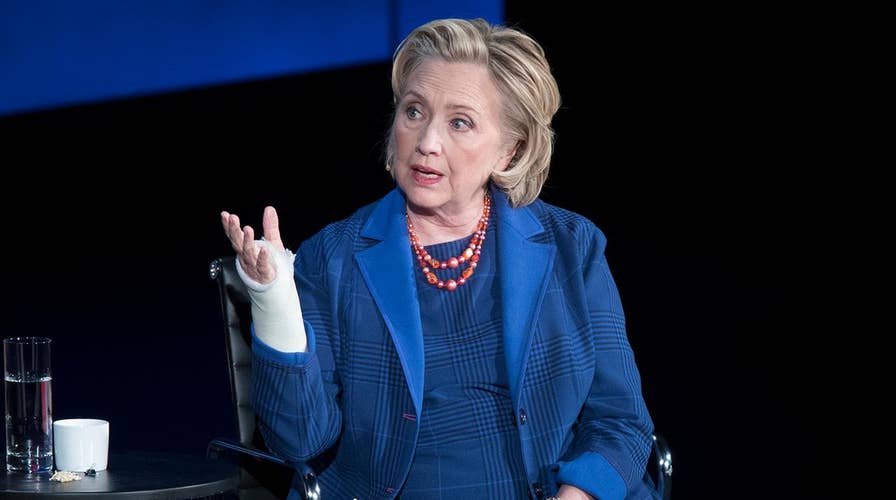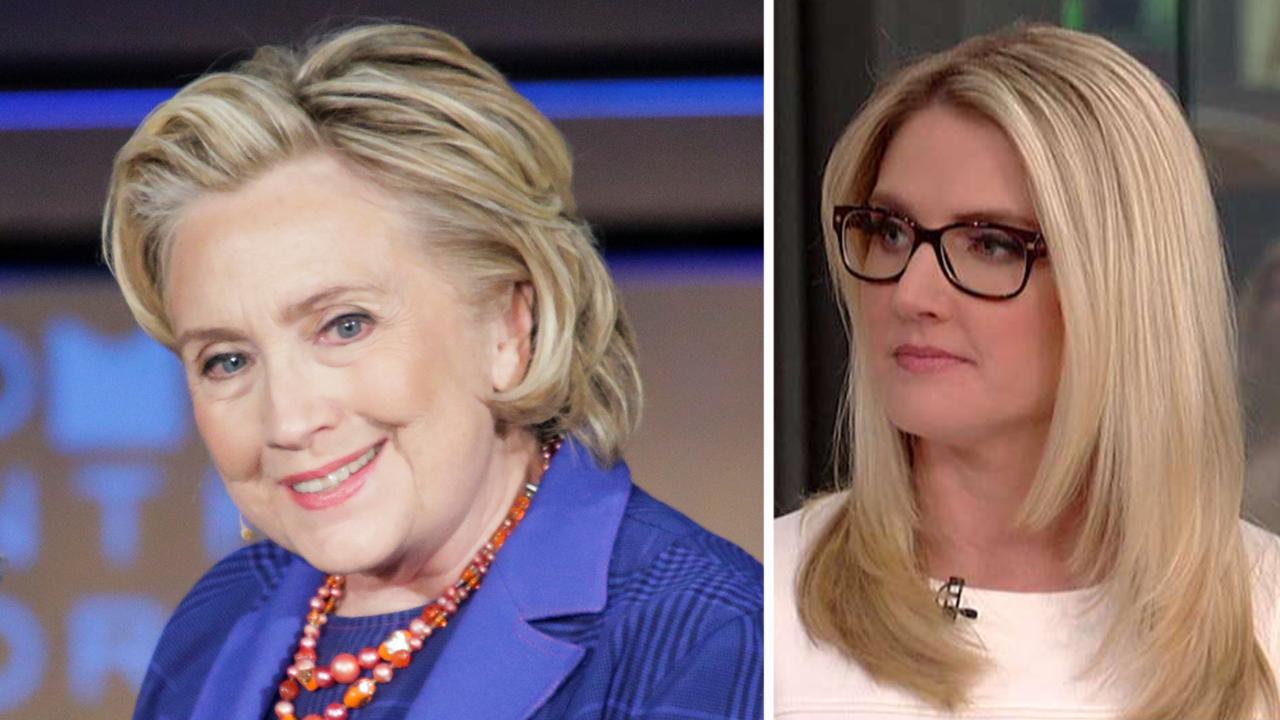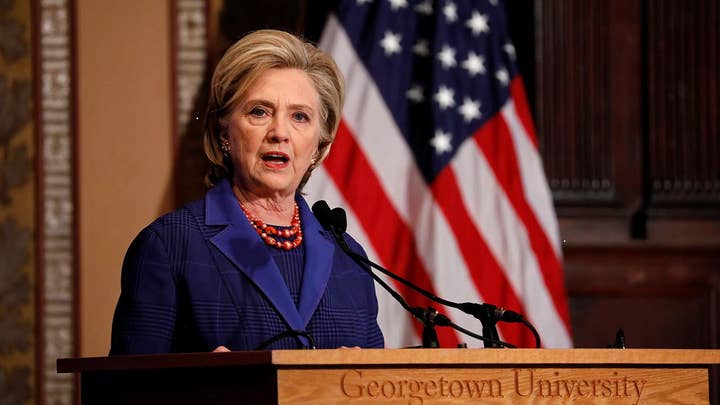Clinton: They were never going to let me be president
A new book highlights the former presidential candidate's gripes about the election.
Hillary Clinton won’t go away.
So conservatives are giving her a seat at the table.
Clinton is starring in the Republican Party’s 2018 midterm strategy. With no Democrat to attack in the White House for the first time in nearly a decade, Republicans are betting big that the ghost of Clinton will serve them well in 2018.
Even if she avoids the spotlight moving forward, the Republican Party plans to evoke her early and often in key congressional races, particularly in regions Trump won, which feature most of the midterm season’s competitive races.
Internal polling and focus groups conducted by Republican campaigns find that Clinton remains one of the most unpopular high-profile Democrats in the nation, second only to Nancy Pelosi, the House minority leader.
Just 36 percent of Americans viewed Clinton favorably in a December Gallup poll, an all-time low mark that bucked a trend in which unsuccessful presidential candidates typically gain in popularity over time.
“We’re going to make them own her,” Republican National Committee spokesman Rick Gorka said.
With control of Congress up for grabs this fall, the GOP’s most powerful players are preparing to spend big on plans to feature Clinton as a central villain in attack ads against vulnerable Democrats nationwide.
The strategy, which already has popped up in races in Pennsylvania, Indiana and North Dakota, illustrates the resilience and political potency of Republican voters’ antipathy for Clinton.
As difficult as it’s been for Democrats to move past the Clinton era, it may be even harder for Republicans.
“STOP HILLARY. STOP PELOSI. STOP LAMB,” read pamphlets circulated during the special election in Pennsylvania earlier this year.
That’s just a taste of what’s to come as the November elections grow closer, say those who control the GOP’s strategy in the first midterm elections of Donald Trump’s presidency.
“I promise you that you’ll continue to see it — Hillary Clinton starring in our paid media. She’s a very powerful motivator,” said Corry Bliss, who leads the Congressional Leadership Fund, a Republican super political action committee ready to spend tens of millions of dollars to shape House races this fall. “It’s about what she represents. What she represents, just like what Nancy Pelosi represents, is out-of-touch far-left liberal positions.”
It’s helpful, some Republicans say, that Clinton refuses to disappear from national politics altogether.
Less than a year ago, she launched a political organization designed to encourage anti-Trump “resistance” groups.
She made two public appearances this week alone.
During recent remarks in India, she took a shot at Trump’s slogan and his appeal across the heartland: “His whole campaign, ‘Make America Great Again,’ was looking backwards,” Clinton said.
The national GOP pounced, running digital ads featuring Clinton’s comments — and her image — to attack the 10 Democratic Senate candidates running for re-election in states Trump carried.
“She’s called you ‘deplorable.’ Now, she’s called you ‘backwards,’” said one ad that targeted Florida Democratic Sen. Bill Nelson.
“If Bill Nelson had his way, Hillary Clinton would be president,” the ad continued. “Florida won’t forget.”
In some cases, Republicans are using Clinton, who last served in the government in 2013, to go after some of their own.
That’s what is happening in Indiana, where Republican congressional candidate Steve Braun is under attack in his primary from conservatives who suggest he may have voted for Clinton in 2008, when he cast a ballot in the state’s Democratic primary.
A super PAC is set to begin running new TV ads linking Braun and Clinton in the coming days.
On the ground in some races, however, Democrats are still figuring out how to navigate the Republican strategy.
In North Dakota, Democratic Sen. Heidi Heitkamp, who faces a tough re-election in November, was asked last month in a radio interview when Clinton would “ride off into the sunset.”
“Not soon enough,” Heitkamp responded.
The Associated Press contributed to this report.







